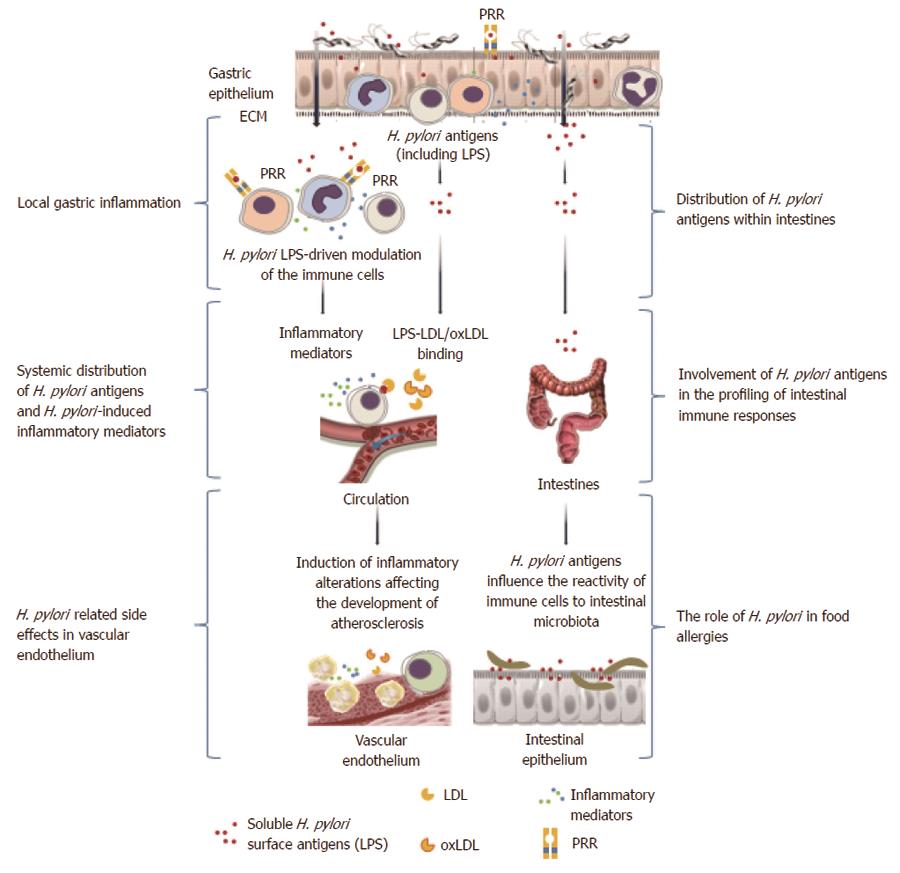Copyright
©2014 Baishideng Publishing Group Inc.
World J Gastroenterol. Aug 7, 2014; 20(29): 9882-9897
Published online Aug 7, 2014. doi: 10.3748/wjg.v20.i29.9882
Published online Aug 7, 2014. doi: 10.3748/wjg.v20.i29.9882
Figure 2 Helicobacter pylori lipopolysaccharide-mediated immunomodulation.
The effector functions of both natural and adaptive immune cells could be downregulated by various lipopolysaccharide (LPS)-dependent mechanisms, making the persistence of Helicobacter pylori (H. pylori) infection possible. These probable mechanisms might include LPS-dependent escape of phagocytosis due to apoptosis of polymorphonuclear cells, downregulation of the cytotoxic activity of natural killer (NK) cells and expansion of NK cells producing regulatory interleukin (IL)-10, expansion of natural killer T cells, inhibition of antigen presentation by mature macrophages, and downregulation of the lymphocyte proliferation indirectly caused by LPS-driven macrophage arrest. Stimulation of B lymphocytes in response to H. pylori LPS may result in the production of anti-Lewis antibodies, which, together with host Lewis antigens, form immune complexes which may induce complement (C)-dependent inflammation. ECM: Extracellular matrix; PRRs: Pathogen recognition receptors; oxLDL: Oxidized low density lipoprotein (LDL).
-
Citation: Chmiela M, Miszczyk E, Rudnicka K. Structural modifications of
Helicobacter pylori lipopolysaccharide: An idea for how to live in peace. World J Gastroenterol 2014; 20(29): 9882-9897 - URL: https://www.wjgnet.com/1007-9327/full/v20/i29/9882.htm
- DOI: https://dx.doi.org/10.3748/wjg.v20.i29.9882









